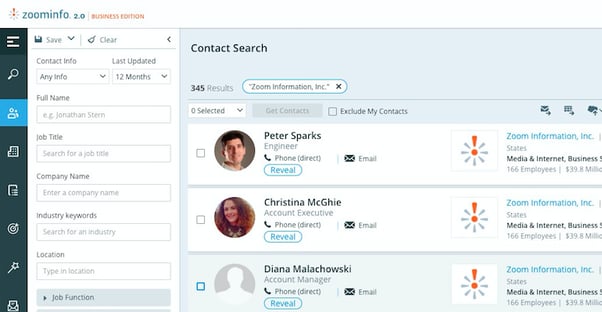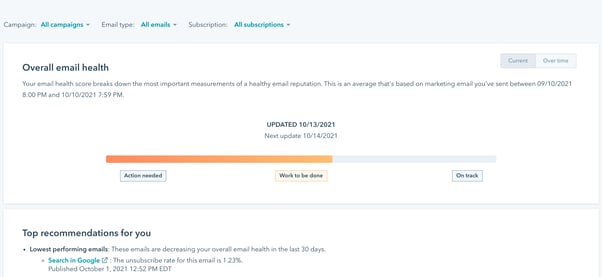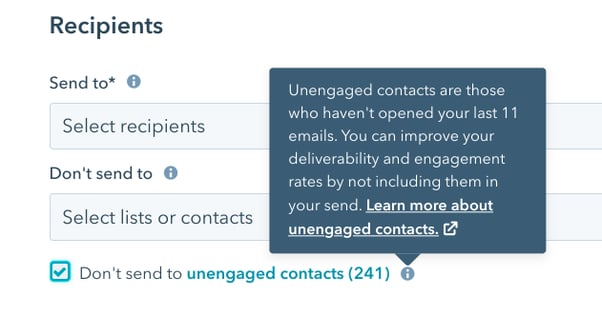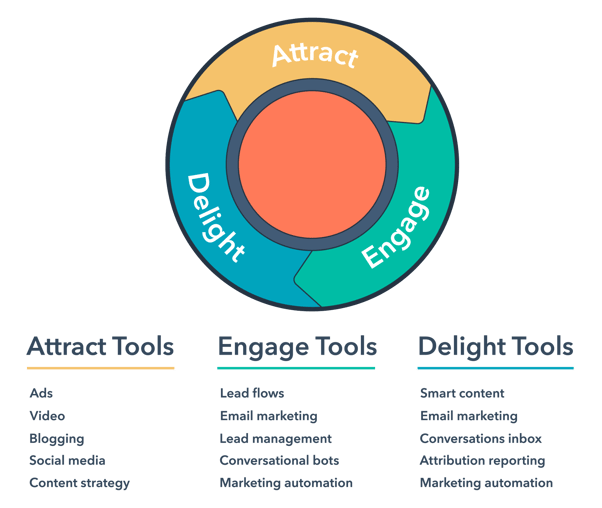You’ve done all your research and convinced management to buy into HubSpot as a new CRM. You build a beautiful marketing email with one of HubSpot’s awesome templates and spend countless hours crafting the perfect content.
The moment is finally here: you upload your email list, excitedly hit “send”, and wait for the replies (and sales!) to start rolling in.
You keep waiting…
Then you wait some more.
Your excitement turns into confusion when you realize that your email wasn’t even opened by 95% of your list.
Sure, with average open rates ranging between 12% and 25%, you weren’t expecting anything crazy… but just 5%? That means that if you sent your email to a list of 2,000 contacts, 1900 of them didn’t even get past the subject line.
And out of the 100 that did open your message, chances are that only a handful actually read it and took action… if any.
This story might sound discouraging. Unfortunately, we see it all too often with new HubSpot clients. And the problem isn’t HubSpot, the newness of your account, or even the email itself.
The problem is your email list.
Building your email list: Cold leads vs. warm leads
There are two kinds of leads for any marketing or salesperson: cold leads and warm leads.
And if our intro story sounded a little too close to home, then we almost guarantee you’re contacting cold leads.
Think of cold leads like a cold call from a telemarketer: the person you’re contacting has no idea who you are or what you do. They could be in the market for the products or services that you provide… or they might not be interested at all.
Warm leads, on the other hand, are people who have taken some sort of action that says “Hey! I’m interested in buying what you’re selling!”. Maybe they downloaded a piece of content from your website, signed up for your newsletter, or gave you a business card at a recent conference.
The problem with cold email marketing
Nearly all of our clients make the mistake of uploading thousands of cold leads into HubSpot and expecting them to respond to marketing emails.
And in almost every case, these email lists were purchased from ZoomInfo or another third party or scraped from LinkedIn.
Psst: If you’re not uploading cold lists but still not getting the results you want, try these 8 tactics to increase your email engagement.

Why does this result in painfully low open rates? There are a few reasons:
1. It’s not YOUR list
Think about it: if you were able to purchase a list of business executives to pitch your services to, how many of your competitors have done the same?
And if your offering isn’t specific to a certain niche or industry, you could actually be competing with businesses that do something completely different, all sending emails to the same people at the same time.
Inbox space is valuable. If you become one of the marketers that clutters it up with irrelevant messages, you’re going to be sent straight to spam every time.
2. They aren’t expecting to hear from you
The most popular emails on sites like ZoomInfo are emails for executives, directors, and other high-up decision makers. But aren’t these also the people who have way too much on their plate and are used to receiving a lot of spam mail?
Businesspeople want to spend as little time in their email as possible. If they see a message come in from someone they don’t know, selling a product or service that they’ve never heard of, they’re not going to divert time from their busy schedule to speak with you.
Instead, an unexpected email will likely be deleted without even being opened first.
3. They don’t know who you are
With the popularity of mass marketing emails and email scams, people are becoming less and less likely to open an email from somebody they don’t know.
Even if your email makes it past automatic filters, there’s a good chance that your leads will make the conscious decision to delete your email if they don’t recognize your company name. Your email might be extremely relevant and personalized on the inside, but that matters very little if your audience doesn’t get that far.
How to overhaul your email strategy
So now you know that you shouldn’t be sending emails to thousands of cold leads. But how do you replace all those leads with warm leads that are interested in hearing from you?
If you’ve been sending emails in HubSpot for a while, start by visiting the Email Health tool. This app will give you an overall email health score and classify your strategy as “Action Needed”, “Work to be Done”, or “On Track”.

This score incorporates your open, click-through, bounce, unsubscribe, and spam report rates. You can view your performance over time and get actionable recommendations on how to improve.
If your open rate in particular is suffering, it’s time to overhaul your email strategy and start incorporating warm leads.
Here’s how to do it:
1. Delete or re-engage cold leads
Did you know that over time, open rates affect your email’s deliverability? If your email provider detects that a large number of emails are deleted without even being opened, it may reduce the number of emails that go out to your list in the future.
That’s why it’s crucial to remove unengaged leads from your list.
HubSpot can automatically stop sending emails to unengaged contacts on your list. You can also manually segment by the date they last opened an email or the number of sends since their last engagement, and unsubscribe and delete any contacts that haven’t responded recently.

If there are cold leads in your system that you haven’t reached out to yet, then consider sending them an engaging opt-in email to ensure they want to be active members of your list. If they don’t reply, remove them from your CRM.
Not sure how to re-engage old leads or customers? Download these 19 free win-back email templates.
2. Create an inbound marketing strategy
The entire concept of inbound marketing is based on warm leads: instead of trying to force your message onto prospects, you offer something unique and exciting that attracts them to your business.
Some of the most common and effective ways to get leads through inbound marketing are:
- Blog posts. Write about a problem or a question that your customers have. They’ll find your article while searching for a solution. If they like what they see, they might just become a customer.
- Downloadable content. Offer a valuable checklist, guide, or other resource in exchange for a lead’s contact information.
- Email newsletters. Is there always something new and exciting going on in your business? Offer leads the chance to sign up and stay in the loop.
- Social media. Encourage your organic followers to sign up for a piece of content, or use paid advertising to get access to new and interested leads.

3. Look for new ways to capture leads
Your business is unique. Your lead generation strategy should be, too! Ask your sales or marketing teams for ideas on how to generate warm leads outside of the typical methods we outlined above.
Whether it’s taking advantage of in-person events, setting up a referral network, or something that would only make sense for your customers, there are always opportunities to find new leads if you know where to look.
How good is your email list?
Put yourself in the shoes of your leads and say you received two marketing emails: one from a company that you recently downloaded an ebook from, and one from a brand you’ve never heard of.
Even if the emails were identical, wouldn’t you be more likely to open the email (and maybe purchase) from the company you already know?
The same is true for your leads. It will be so much easier for you to get the open and click rates you’re looking for when you’re speaking to a list of relevant, engaged contacts who are interested in you and what you have to offer.
Are you having trouble dealing with an overwhelming list of cold leads? Need help creating an inbound marketing strategy? Horseshoe & Co. is here! Our team are experts in HubSpot implementation AND marketing and sales strategy, so you get the best of both with none of the trade-offs. Get in touch today.


